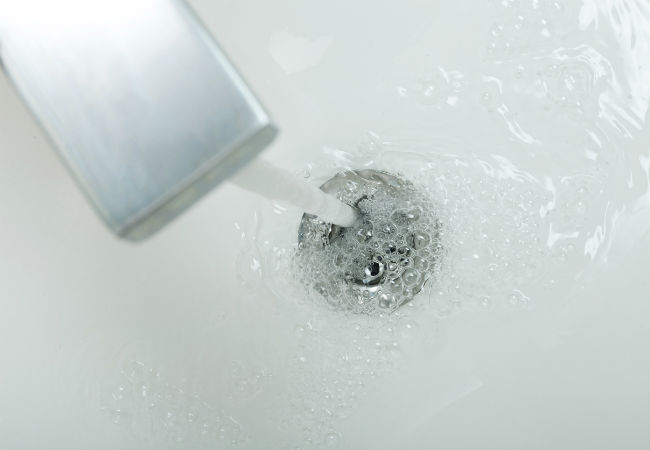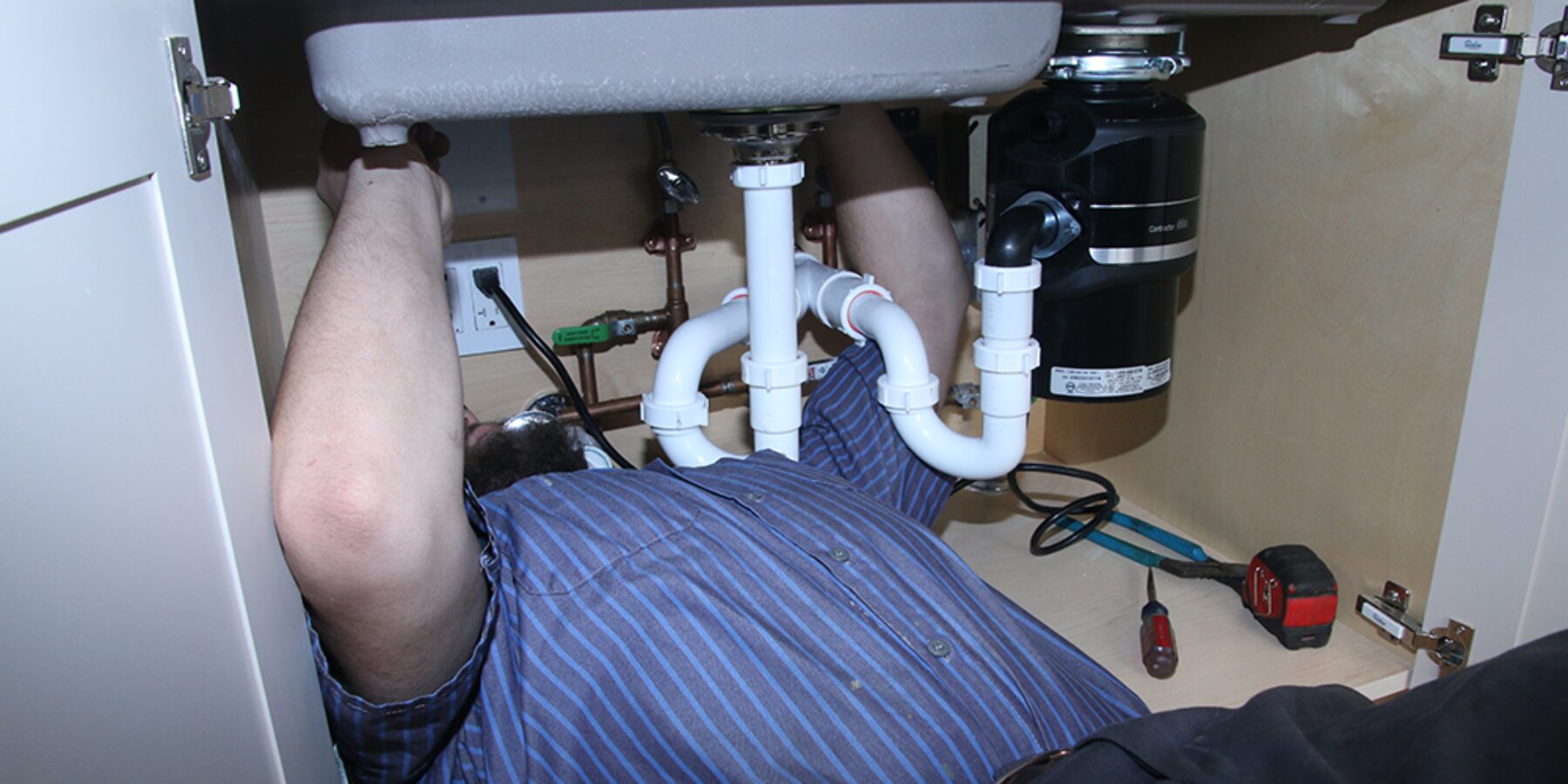Techniques To Correct A Slow-Draining Sink
Techniques To Correct A Slow-Draining Sink
Blog Article
Any individual will have their private theory in relation to Three Common Ways to Fix a Slow Drain.

Intro
We've all been there: You're brushing your teeth or washing your hands, and you notice the water merging in the sink. Rather than quickly swirling down the drain, it remains, turning your once-refreshing early morning routine right into a miniature overload scene. A slow-draining sink isn't just aggravating; it's typically an indication of bigger plumbing problems hiding below the surface. The bright side is that many slow-draining sinks can be taken care of with a little knowledge, a few standard devices, and some patience. Ready to tackle this project head-on? Let's roll up our sleeves and dive right in.
Understanding the Causes of a Slow-Draining Sink
Prior to you begin poking around in your pipes, it helps to know what might be triggering the slowdown. Understanding the origin makes it less complicated to pick the best solution.
Devices and Products You'll Require
The right tools make all the distinction. Luckily, you won't require a completely stocked plumbing technician's van to get the job done.
Step-by-Step Guide to Repairing a Slow-Draining Sink
Now, allow's enter the nitty-gritty. This step-by-step process will lead you with straightforward methods to recover your sink's water drainage.
Action 1: Get Rid Of and Tidy the Stopper
Often, the stopper (that tiny plug you lower to obstruct water) is the first perpetrator. Remove it meticulously and wipe any type of hair or gunk caught around its base. Wash it extensively prior to putting it back in place.
Action 2: Make Use Of a Plunger to Remove Debris
Got that plunger ready? Position it over the drainpipe and provide it a couple of company pumps. The concept is to create suction that can loosen any type of obstruction. If you see littles debris floating up, you're on the best track.
Step 3: Try a Drainpipe Serpent or Cord Wall Mount
If the bettor does not do the trick, it's time to bring out the drainpipe serpent. Delicately feed it right into the drainpipe and spin as you go. You could really feel some resistance-- that's most likely the clog. Keep turning and drawing till you eliminate the obstruction. If you don't have a drain snake, an aligned cord wall mount can work in a pinch.
Step 4: Use a Do It Yourself Drain Cleanser
A natural cleaner made from baking soft drink and vinegar can break down recurring gunk. Pour half a cup of cooking soda into the drain, adhered to by half a mug of vinegar. Let it fizz for about 15 minutes, after that flush with warm water. This chemical reaction commonly does wonders for small blockages.
Step 5: Reassemble and Examine the Sink
Put everything back together and run the tap. Does the water currently swirl down the drain at a commendable speed? If yes, offer on your own a pat on the back. If not, do not anguish-- there are still a couple of more dress up your sleeve.
Crucial Tools for DIY Repair Works
A bettor is your best beginning factor. A tiny, sink-sized plunger produces suction that can remove small clogs. For more persistent clogs, a drainpipe serpent (occasionally called a plumbing's auger) works marvels. A set of gloves, a flashlight, and maybe a set of protective safety glasses are additionally useful.
Suggested Cleaning Solutions
Moderate recipe soap and hot water can help break down greasy build-up. A mix of baking soft drink and vinegar is a tried and true home remedy, and chemical cleaners offer a more eco-friendly technique. Maintain chemical drainpipe cleaners as a last resource, as they can be rough on your pipes.
Typical Culprits Behind Slow Water Drainage
So, what's blocking points up? Normally, it's a mixture of daily debris-- assume hair, soap residue, tooth paste residue, and leftover food bits. Gradually, these tiny bits build up and hold on to the pipe walls, slowly tightening the passage and making it harder for water to pass through. In some cases, natural resource from hard water can likewise add to the crud, developing the excellent tornado for persistent clogs.
When is it Time to Do Something About It?
If you discover the water draining pipes slower than typical, it's a good idea to intervene earlier rather than later. Waiting as well long might lead to finish clogs, undesirable odors, and even pipeline damage. If the water takes greater than a few secs to clean out after shutting off the tap, consider it a warning and get ready to put on your do it yourself hat.
Safety And Security First: Precautions and Preparations
Prior to you launch into unclogging mode, think about safety. You're dealing with possibly unclean water and particles, so slip on a pair of handwear covers. If you're using chemical cleaners, make certain the room is well-ventilated and comply with the directions on the tag.
Safety Equipment and Work Space Setup
Lay down some old towels or dustcloths around the sink location to capture sprinkles. Remove any type of products that might get in your means, like soap dispensers or tooth brush holders. Ensure you have good lights-- get hold of a flashlight if needed.
Alternative Approaches for Stubborn Clogs
Not all blockages are created equivalent. If your sink still refuses to coordinate, think about these alternative options.
Baking Soda and Vinegar Technique
We currently touched on this, however it deserves noting once more. This mild, green technique is more secure than chemical cleansers and commonly quite effective.
Enzymatic Drain Cleaners
Enzyme-based cleansers use all-natural germs to digest organic matter. They're a superb choice if you're wanting to prevent rough chemicals. Simply remember, they may take a bit longer to work their magic.
Chemical Drain Cleaning Company: Advantages And Disadvantages
Chemical cleansers can blast through challenging obstructions quick, yet they're not without drawbacks. They can produce heat and fumes, damages pipes if utilized excessively, and present environmental threats. Use them sparingly, and constantly follow the instructions very carefully.
Preventive Measures to Maintain Your Sink Flowing
Avoidance is the very best cure. By embracing a couple of easy practices, you can keep your sink from slowing down to begin with.
Regular Cleaning Routines
Clean down the sink basin and component area routinely. Remove hair or food particles before they have a chance to wash down the drain.
Staying Clear Of Hazardous Substances Down the Drain
Reconsider before unloading coffee premises, grease, or fibrous veggie scraps down the sink. These perpetrators hold on to pipe walls, producing blockages with time.
Routine Maintenance Checks
Arrange a fast monthly evaluation. Run warm water through the sink for a couple of minutes, paying attention to the circulation. If it seems sluggish, act quickly prior to it becomes a full-on clog.
When to Call an Expert Plumbing
Occasionally, regardless of exactly how tough you attempt, that clog simply will not budge. That's when it's time to bring in the pros.
Signs That Show an Extra Major Concern
If your sink drains slowly despite multiple efforts, or if you observe water backing up in other components (like your shower or bathroom), you may have a much more significant pipes concern prowling deeper in the system.
Balancing DIY Initiatives with Specialist Help
While do it yourself can save you cash and supply a sense of achievement, there's no embarassment in calling a specialist. A professional plumbing technician can evaluate your entire pipes arrangement, making sure there's no underlying damages or long-lasting trouble that might cost you more in the future.
Comparing Prices and Long-Term Solutions
Before choosing, think about the big picture. A low-cost, quick fix could solve the issue briefly, yet investing in a much more irreversible solution could save you money and anxiety in the long run.
Considering the Expenditures of Do It Yourself vs. Expert Fixes
DIY fixes frequently cost little bit greater than the price of a plunger or a container of cooking soft drink. Professional services, on the other hand, included a price but may avoid repeated issues and expensive repairs later on.
Investing in Quality Fixtures and Upgrades
If your sink's style contributes to constant blockages, it might be worth updating to higher-quality fixtures or changing the pipes layout. Consider this a financial investment in your home's capability and comfort.
Verdict
A slow-draining sink can seem like a small irritation, however it's typically a sign that your pipes requires a little TLC. By recognizing the source, using the right tools and methods, and devoting to easy safety nets, you can maintain your sink flowing freely. And when all else falls short, never ever hesitate to contact an expert-- your home's pipes is worth the investment in care and upkeep.
Three Common Ways to Fix a Slow Drain
Baking Soda Method
Boil a full pot of water. Measure out cup of baking soda and pour it down the drain. Then take cup of the magical cleansing substance known as white vinegar and drop that down there too. Allow the mixture to fizz in the drain for five minutes as the vinegar and baking soda combine. Now dump in that whole pot of boiling water. This combination of cleaning substances should clear out anything that is causing your sink to drain slowly. If it doesn t...
Zip-It
If the baking soda method doesn t clear out your drain, it may be because a significant amount of hair and/or other debris has collected there and you need to remove it. Purchase a Zip-It tool at any home improvement or hardware store and insert it into your drain. It will catch any collected hair or debris that s blocking the flow of water. Pull it out. If it s got a big clump of hair, etc. on the end, you ve probably got your culprit.
Drain Cleaner
If these methods don t work, there is the standard drain cleaner that you can also buy in a hardware store or even your local grocery store. It s better if you can use a household solution, but these drain cleaners often work in a pinch. They re very simple to use. You generally just dump them in your drain and wait. If even this method is not effective, it may be time to call the plumber.
https://www.mrrooter.com/oneida/about-us/blog/2017/july/three-common-ways-to-fix-a-slow-drain/

Hopefully you enjoyed reading our part about 7 Ways To Fix A Slow-Draining Sink Before You Call A Plumber. Thank you for taking the time to read our article. Sharing is nice. Helping others is fun. I treasure reading our article about Solved! How to Fix a Slow Sink Drain.
Show Details Report this page